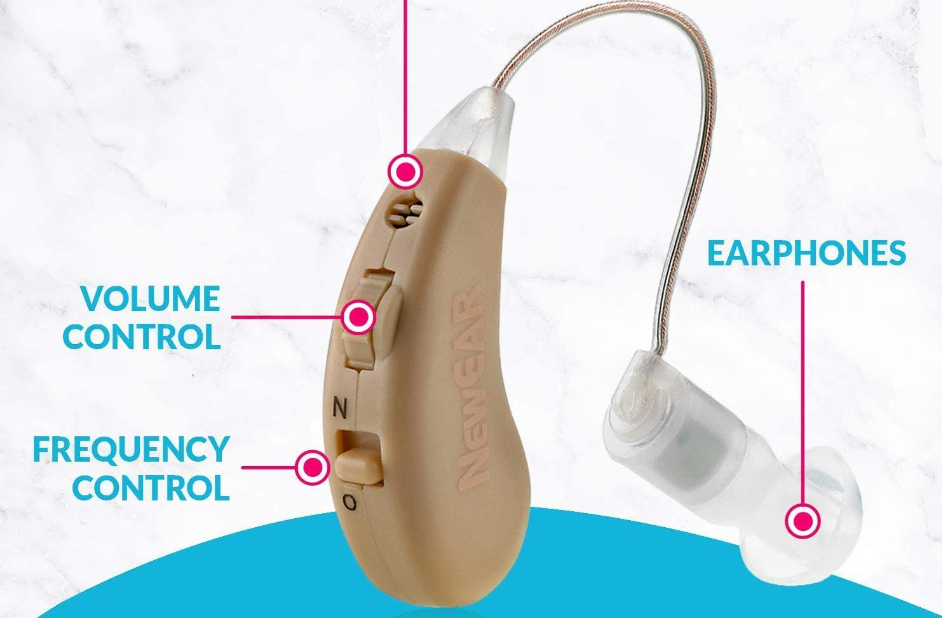Hearing loss can be a challenging condition to navigate, impacting communication and quality of life. Thankfully, advancements in technology have led to the development of various hearing aids, including volume control hearing aids. In this comprehensive guide, we’ll delve into everything you need to know about this device, from how it works to its benefits.
Understanding Volume Control Hearing Aids
Volume control hearing aids are designed to provide individuals with customizable control over the amplification of sounds. Unlike traditional hearing aids with fixed amplification levels, volume control models allow users to adjust the volume according to their preferences and specific listening environments. This flexibility can significantly enhance the user experience and improve comfort and clarity.
How Do Volume Control Hearing Aids Work?
Volume control hearing aids consist of several key components, including a microphone, amplifier, receiver, and volume control mechanism. The microphone picks up surrounding sounds and converts them into electrical signals, which are then amplified by the amplifier. The amplified signals are finally delivered to the ear through the receiver.
The volume control feature allows users to adjust the amplification level manually, typically using a dial or buttons located on the hearing aid device. By increasing or decreasing the volume, users can fine-tune their hearing aids to suit various situations, such as quiet conversations or noisy environments like bustling restaurants or crowded events.
Benefits of Volume Control Hearing Aids
1. Customizable Amplification: One of the most significant advantages of this device is its customizable amplification. Users can adjust the volume based on their unique hearing needs and preferences, ensuring optimal clarity and comfort in different listening scenarios.
2. Improved User Experience: The ability to control the volume empowers users to actively participate in their hearing care journey. Rather than relying solely on preset settings, individuals can fine-tune their hearing aids in real-time, enhancing their overall satisfaction and confidence.
3. Adaptability: These devices are highly adaptable to changing environments. Whether in quiet settings or amidst background noise, users can easily adjust the volume to maintain clear and comfortable hearing, thereby improving communication and social interactions.
4. Enhanced Comfort: By having control over the amplification level, users can avoid discomfort caused by excessively loud or soft sounds. This feature ensures a more comfortable listening experience, reducing fatigue and irritation associated with prolonged use of hearing aids.
Tips for Choosing and Using Volume Control Hearing Aids
If you’re considering volume control hearing aids, here are some tips to help you make an informed decision and maximize their benefits:
1. Consult with an Audiologist: Before purchasing hearing aids, schedule a consultation with an audiologist to undergo a comprehensive hearing assessment. An audiologist can recommend the most suitable hearing aid options based on your specific hearing needs and lifestyle preferences.
2. Consider Lifestyle Factors: Think about your daily activities and environments when selecting this device. If you frequently encounter loud or dynamic situations, adjustable volume settings may be particularly beneficial.
3. Practice Proper Maintenance: Regular maintenance and cleaning are essential for ensuring optimal performance and longevity of this device. Follow the manufacturer’s guidelines for cleaning and storing your devices, and schedule periodic check-ups with your audiologist for adjustments and repairs.
4. Gradual Adjustment: When first using volume control hearing aids, start with lower volume settings and gradually increase the amplification level as needed. This gradual adjustment allows your ears to acclimate to the new sounds and prevents discomfort or overstimulation.
Conclusion
Volume control hearing aids offer a versatile solution for individuals with hearing loss, providing customizable amplification and improved user control. While they come with various benefits, it’s essential to weigh the potential drawbacks and consider your specific hearing needs before making a decision. By consulting with an audiologist and following best practices for selection and usage, you can enjoy clearer, more comfortable hearing in a variety of listening environments.
FAQs
1. Do NHS hearing aids have volume control?
Yes, some NHS hearing aids do have volume control. However, the availability of this feature may vary depending on the specific model and technology provided by the NHS.
2. Do hearing aids have volume controls?
Yes, many modern hearing aids, including both NHS-provided and privately purchased ones, come with volume control features. This allows users to adjust the amplification levels according to their personal preferences and environmental needs.
3. Why is everything so loud with hearing aids?
When you first start using hearing aids, it may seem like everything sounds louder than usual. This is because your brain is adjusting to the amplified sounds that were previously missed due to hearing loss. With time, your brain will adapt, and the perceived loudness will normalize.
4. Does your hearing get worse if you don’t wear a hearing aid?
While not wearing a hearing aid won’t directly cause your hearing to worsen, it can lead to a condition known as auditory deprivation. Auditory deprivation occurs when the auditory system is not adequately stimulated due to untreated hearing loss, potentially resulting in a decline in speech understanding and cognitive function over time.
5. Is hearing loss linked to dementia?
Research suggests that there may be a link between untreated hearing loss and an increased risk of cognitive decline and dementia. The exact mechanisms behind this association are still being studied, but it’s believed that the strain of untreated hearing loss on cognitive resources and social isolation may contribute to the development of dementia in some individuals. Early intervention with hearing aids may help mitigate this risk.
